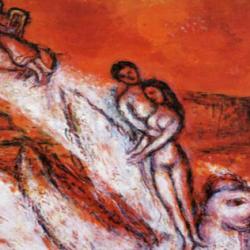Tyler Atkinson uses Bonaventure and Luther as his primary interlocutors in his study of the “work ethic” of Ecclesiastes, Singing at the Winepress. The two giants offer quite divergent readings of the book. For Bonaventure, the vanity of the world encourages withdrawal; for Luther, though, the goal is to find rest within the oeconomia and politia.
Drawing on the Augustinian distinction of use and enjoyment, “Luther reads Solomon’s ‘public sermon’ as radically calling one to find rest (quietus) in economic-political existence, rather than calling one to flee the oeconomia and the politia” (184).
Rest can only be found in the right use of the things of this world. As Atkinson puts it, for Luther, “measuring success according to the calculus of accumulation makes one blind to the appropriate use of resources and contributes to economic restlessness.” As Luther puts it, “A miser . . . cannot use . . . his money for the purpose for which it was established, namely, to eat, drink, and clothe himself, and to serve others with what is left.” The miser “attains to an utterly miserable life, without rest or peace” (158).
Luther makes a similar point in his comments on Solomon’s “two are better than one” (Ecclesiastes 4:9-12). Atkinson summarizes: “In these verses, Solomon recommends a social existence and the sharing of goods. Being human entails living such a life. On the other hand, ‘solitary accumulators . . . are not human beings but beasts and dogs.’ One must not miss the anthropological significance of Luther’s comment. The vices in question not only devalue one’s neighbor. They dehumanize the offender herself or himself” (160).
Behind these economic and political emphases, Atkinson discerns classic Reformation themes. Avarice matches political ambition; sloth is the economic equivalent of political anarchy. But the royal road between these extremes exists also in the ecclesia: “Along with avarice, political ambition reflects the works-righteousness of the papists. Anarchy, on the other hand, is the political counterpart to sloth and reflects the antinomianism of the sectarians. In fact, the sectarians themselves translate their antinomianism into political anarchy, the evidence of which for Luther lies in the Peasants’ Rebellion” (161).














